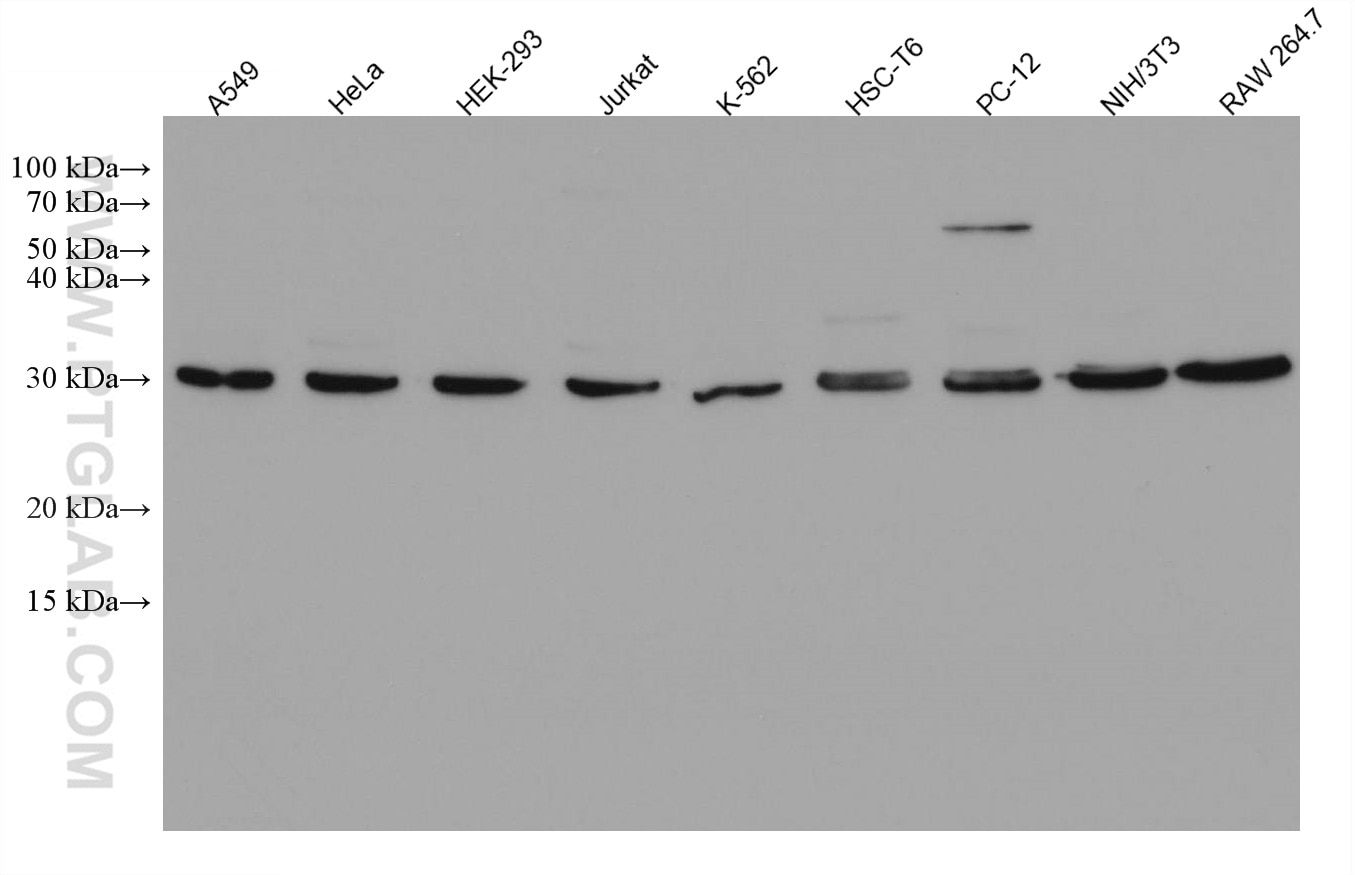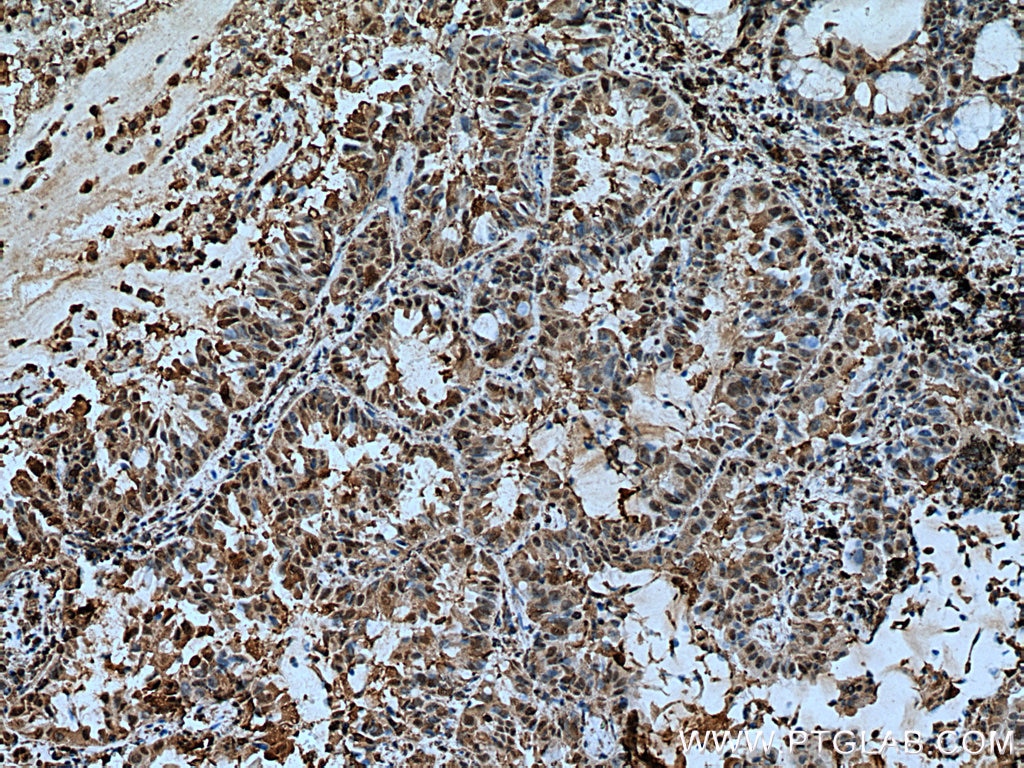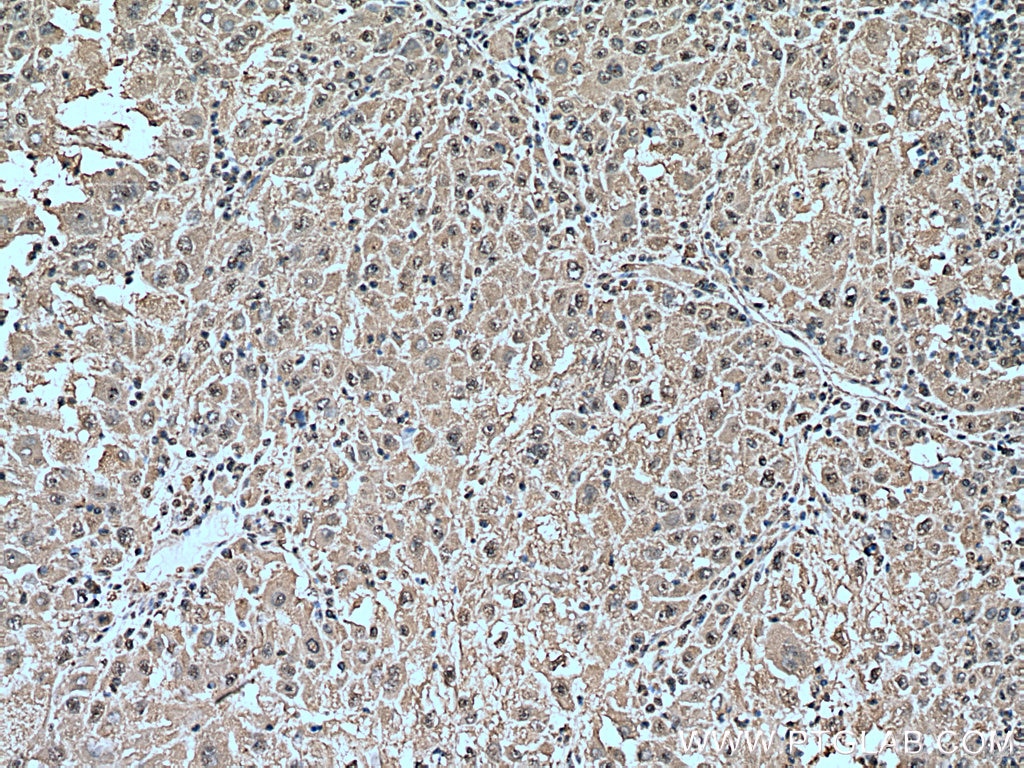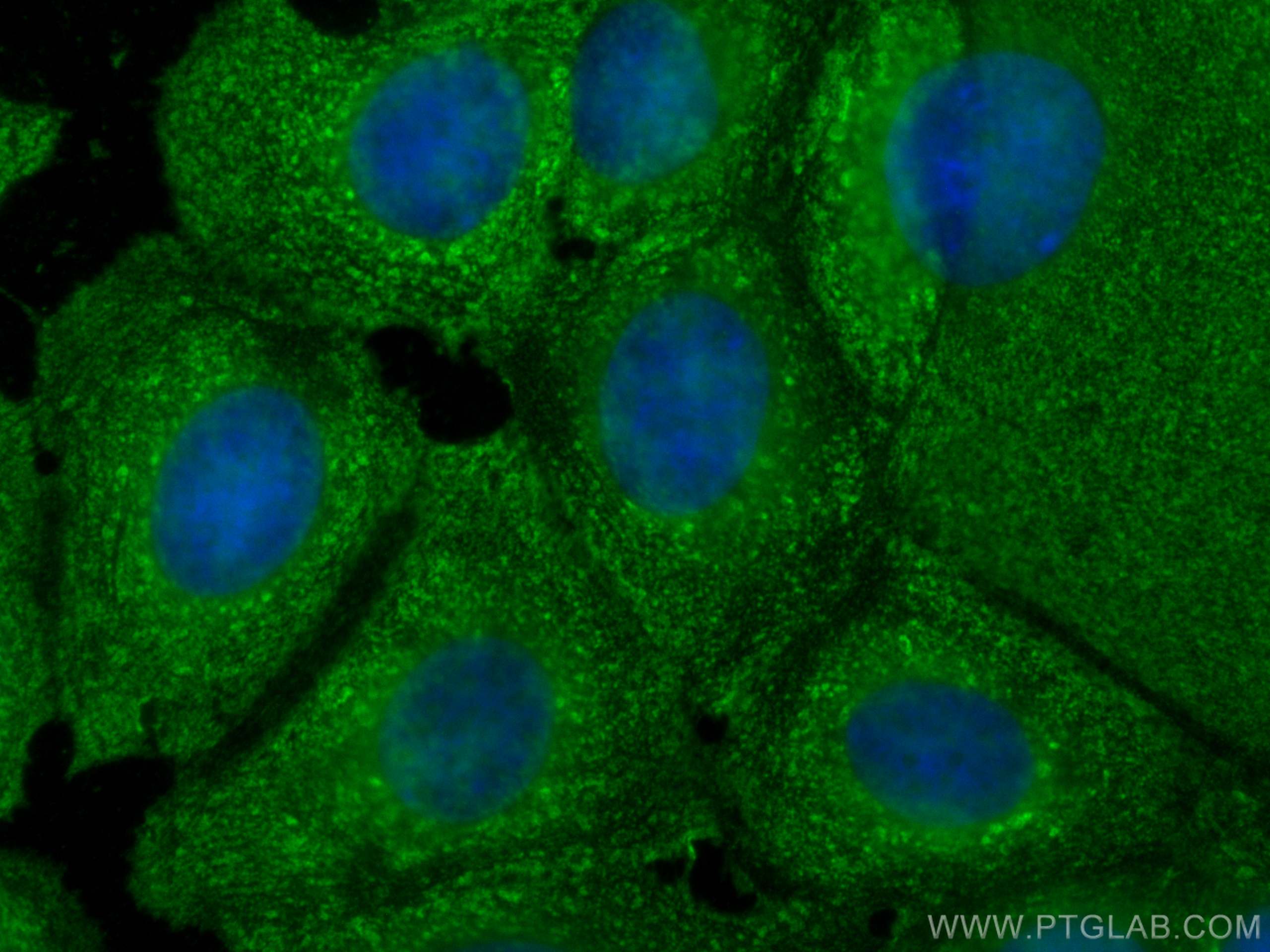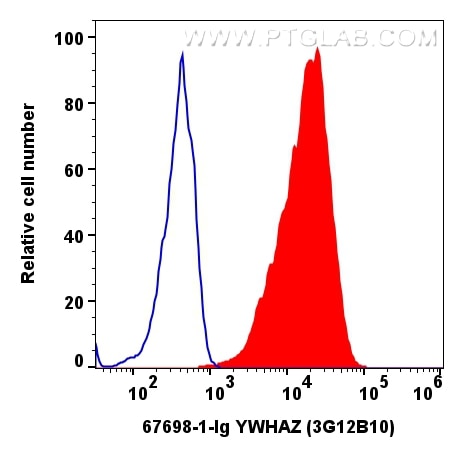Tested Applications
| Positive WB detected in | A549 cells, HeLa cells, HEK-293 cells, Jurkat cells, K-562 cells, HSC-T6 cells, PC-12 cells, NIH3T3 cells, RAW 264.7 cells |
| Positive IHC detected in | human lung cancer tissue, human liver cancer tissue Note: suggested antigen retrieval with TE buffer pH 9.0; (*) Alternatively, antigen retrieval may be performed with citrate buffer pH 6.0 |
| Positive IF/ICC detected in | MCF-7 cells |
| Positive FC (Intra) detected in | A549 cells |
Mouse monoclonal antibodies of IgM isotype can be detected with "anti-mouse IgG (H+L)" secondary antibodies.
Recommended dilution
| Application | Dilution |
|---|---|
| Western Blot (WB) | WB : 1:5000-1:50000 |
| Immunohistochemistry (IHC) | IHC : 1:200-1:800 |
| Immunofluorescence (IF)/ICC | IF/ICC : 1:400-1:1600 |
| Flow Cytometry (FC) (INTRA) | FC (INTRA) : 0.2 μg per 10^6 cells in a 100 µl suspension |
| It is recommended that this reagent should be titrated in each testing system to obtain optimal results. | |
| Sample-dependent, Check data in validation data gallery. | |
Product Information
67698-1-Ig targets YWHAZ in WB, IHC, IF/ICC, ELISA applications and shows reactivity with human, mouse, rat samples.
| Tested Reactivity | human, mouse, rat |
| Host / Isotype | Mouse / IgM |
| Class | Monoclonal |
| Type | Antibody |
| Immunogen |
CatNo: Ag6667 Product name: Recombinant human YWHAZ protein Source: e coli.-derived, PET28a Tag: 6*His Domain: 1-245 aa of BC003623 Sequence: MDKNELVQKAKLAEQAERYDDMAACMKSVTEQGAELSNEERNLLSVAYKNVVGARRSSWRVVSSIEQKTEGAEKKQQMAREYREKIETELRDICNDVLSLLEKFLIPNASQAESKVFYLKMKGDYYRYLAEVAAGDDKKGIVDQSQQAYQEAFEISKKEMQPTHPIRLGLALNFSVFYYEILNSPEKACSLAKTAFDEAIAELDTLSEESYKDSTLIMQLLRDNLTLWTSDTQGDEAEAGEGGEN Predict reactive species |
| Full Name | tyrosine 3-monooxygenase/tryptophan 5-monooxygenase activation protein, zeta polypeptide |
| Calculated Molecular Weight | 28 kDa |
| Observed Molecular Weight | 28-30 kDa |
| GenBank Accession Number | BC003623 |
| Gene Symbol | YWHAZ |
| Gene ID (NCBI) | 7534 |
| RRID | AB_2882890 |
| Conjugate | Unconjugated |
| Form | Liquid |
| Purification Method | Caprylic acid/ammonium sulfate precipitation |
| UNIPROT ID | P63104 |
| Storage Buffer | PBS with 0.02% sodium azide and 50% glycerol, pH 7.3. |
| Storage Conditions | Store at -20°C. Stable for one year after shipment. Aliquoting is unnecessary for -20oC storage. 20ul sizes contain 0.1% BSA. |
Background Information
YWHAZ (also known as 14-3-3 zeta) is a member of 14-3-3 proteins which were the first phosphoserine/phosphothreonine-binding proteins to be discovered. 14-3-3 family members interact with a wide spectrum of proteins and possess diverse functions. Mammals express seven distinct 14-3-3 isoforms (gamma, epsilon, beta, zeta, sigma, theta, tau) that form multiple homo- and hetero- dimmers. 14-3-3 proteins display the highest expression levels in the brain, and have been implicated in several neurodegenerative diseases, including Alzheimer's disease and amyotrophic lateral sclerosis.
Protocols
| Product Specific Protocols | |
|---|---|
| IF protocol for YWHAZ antibody 67698-1-Ig | Download protocol |
| IHC protocol for YWHAZ antibody 67698-1-Ig | Download protocol |
| WB protocol for YWHAZ antibody 67698-1-Ig | Download protocol |
| Standard Protocols | |
|---|---|
| Click here to view our Standard Protocols |

